At midday on April 14, President Xi Jinping’s Air China plane landed at Noi Bai International Airport, beginning his state visit to Vietnam at the invitation of General Secretary To Lam and President Luong Cuong.
President Xi expressed his pleasure in returning to Vietnam for the fourth time, highlighting the significance of this trip as his first overseas visit in 2025.
Following his arrival, a motorcade of Hanoi’s traffic police - coordinated with the Ministry of Public Security and Hanoi police - escorted the Chinese delegation from the airport to their hotel and then to the Presidential Palace.
At 4:00 p.m. the same day, General Secretary To Lam presided over the official welcome ceremony for President Xi Jinping and the high-level Chinese delegation.
As the national anthems of both countries played, 21 ceremonial cannon shots were fired from Thang Long Imperial Citadel by Artillery Brigade 45.
Following the honor guard review, General Secretary To Lam introduced the Vietnamese delegation to the Chinese President.
During bilateral talks, the two leaders discussed internal party and national affairs, the state of China-Vietnam relations, and regional and international issues of mutual concern. Both sides acknowledged major progress in the relationship between the two Parties and two countries, guided by the “six priorities” framework and frequent high-level exchanges.
President Xi described Vietnam as a “comrade and brother” nation and emphasized that choosing Vietnam as the first stop in his international itinerary for the year reflects the Chinese Party and State’s deep respect for and commitment to China-Vietnam relations.
General Secretary To Lam reiterated that strengthening ties with China is a strategic choice and top priority in Vietnam’s foreign policy.
After the official meeting, the two leaders witnessed a ceremonial exhibition of cooperation documents signed between the two nations.
Later that afternoon, Prime Minister Pham Minh Chinh met President Xi at the Communist Party of Vietnam’s headquarters. PM Chinh shared an overview of Vietnam’s socio-economic development, particularly the nation’s “three strategic breakthroughs” and “strategic quartet,” which includes developing science and technology, streamlining government institutions, supporting private enterprise, and building an independent, globally integrated economy.
The Prime Minister proposed enhancing practical cooperation, especially in railway projects, focusing on credit, technology transfer, and human resource training.
He urged both sides to finalize and sign an ODA loan agreement to commence construction of the Lao Cai - Hanoi - Hai Phong railway in 2025, followed by other key routes like Dong Dang - Hanoi and Mong Cai - Ha Long - Hai Phong.
He also called for a more balanced and sustainable trade relationship and improved access for Vietnamese agricultural products into China.
Impressed by Vietnam’s achievements under the Doi Moi (Renovation) process, President Xi congratulated the country’s development and wished Vietnam success in its upcoming 14th National Party Congress.
President Xi also met National Assembly Chairman Tran Thanh Man, agreeing that both sides should increase legislative exchanges and create a strong legal framework to support major joint projects - including three standard-gauge rail lines linking the two nations.
On the morning of April 15, President Xi and the Chinese delegation laid a wreath and visited the Ho Chi Minh Mausoleum.
Nguyen Vinh Quang, Vice President of the Vietnam-China Friendship Association, shared with VietNamNet that “Uncle Ho spent many years of revolutionary activity in China. When you ask Chinese people about Vietnam, they often first think of him with admiration.”
Later that morning, President Xi held talks with President Luong Cuong at the Presidential Palace. The two sides agreed to strengthen cooperation in emerging areas such as green development, 5G, and artificial intelligence. They also committed to expanding cultural and people-to-people exchanges - especially among the younger generations, seen as the future of China-Vietnam relations.
In the afternoon, President Xi and his delegation departed Hanoi, concluding their 26-hour state visit to Vietnam.
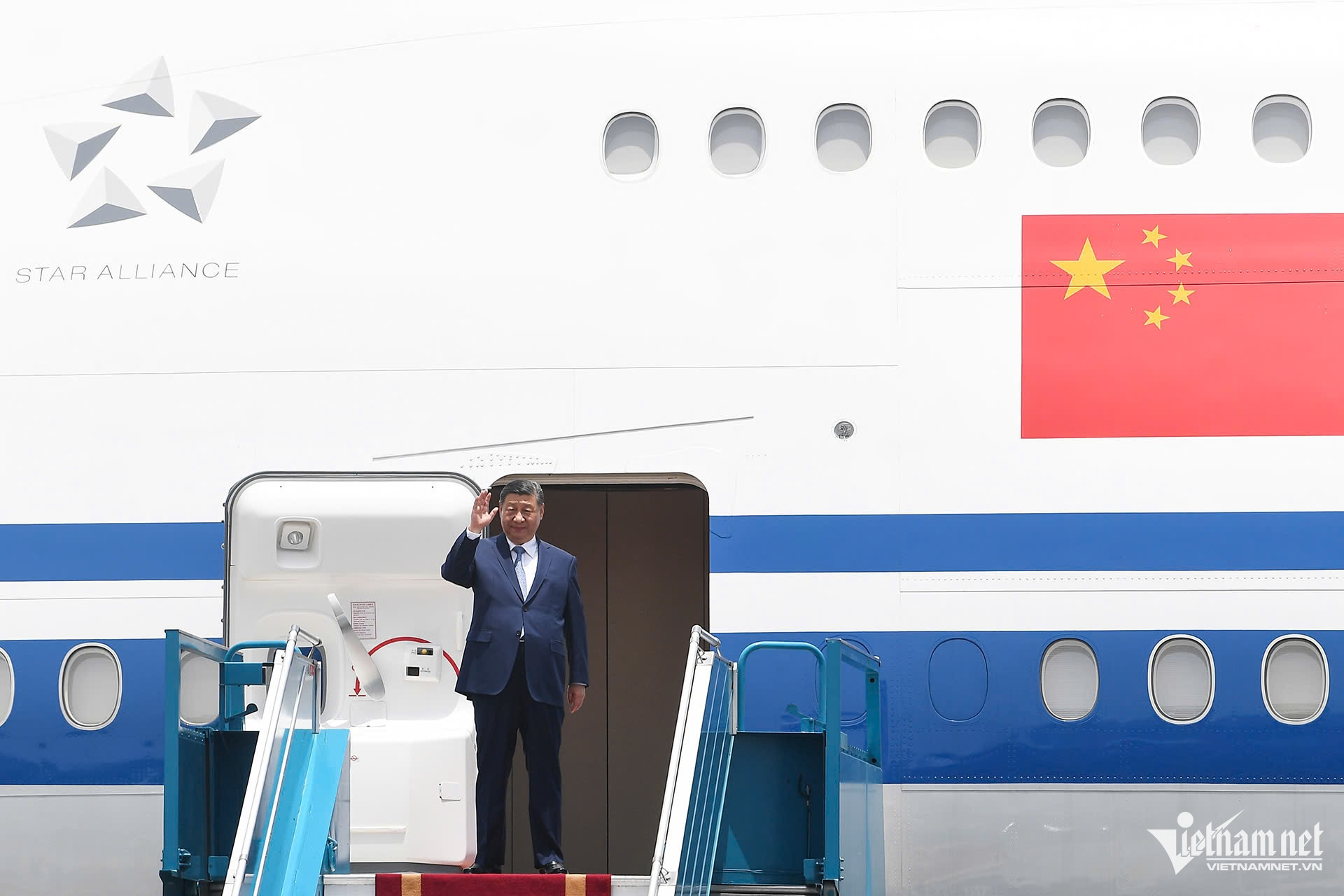

President Luong Cuong welcomes Chinese President Xi Jinping at Noi Bai Airport. Photo credit: Hoang Ha

Hanoi’s Traffic Police Unit, in coordination with forces from the Ministry of Public Security and Hanoi Police, deployed a fleet of superbikes to escort the motorcade carrying the high-ranking Chinese delegation from Noi Bai Airport to the hotel, then straight to the Presidential Palace. Photo credit: Quyet Thang

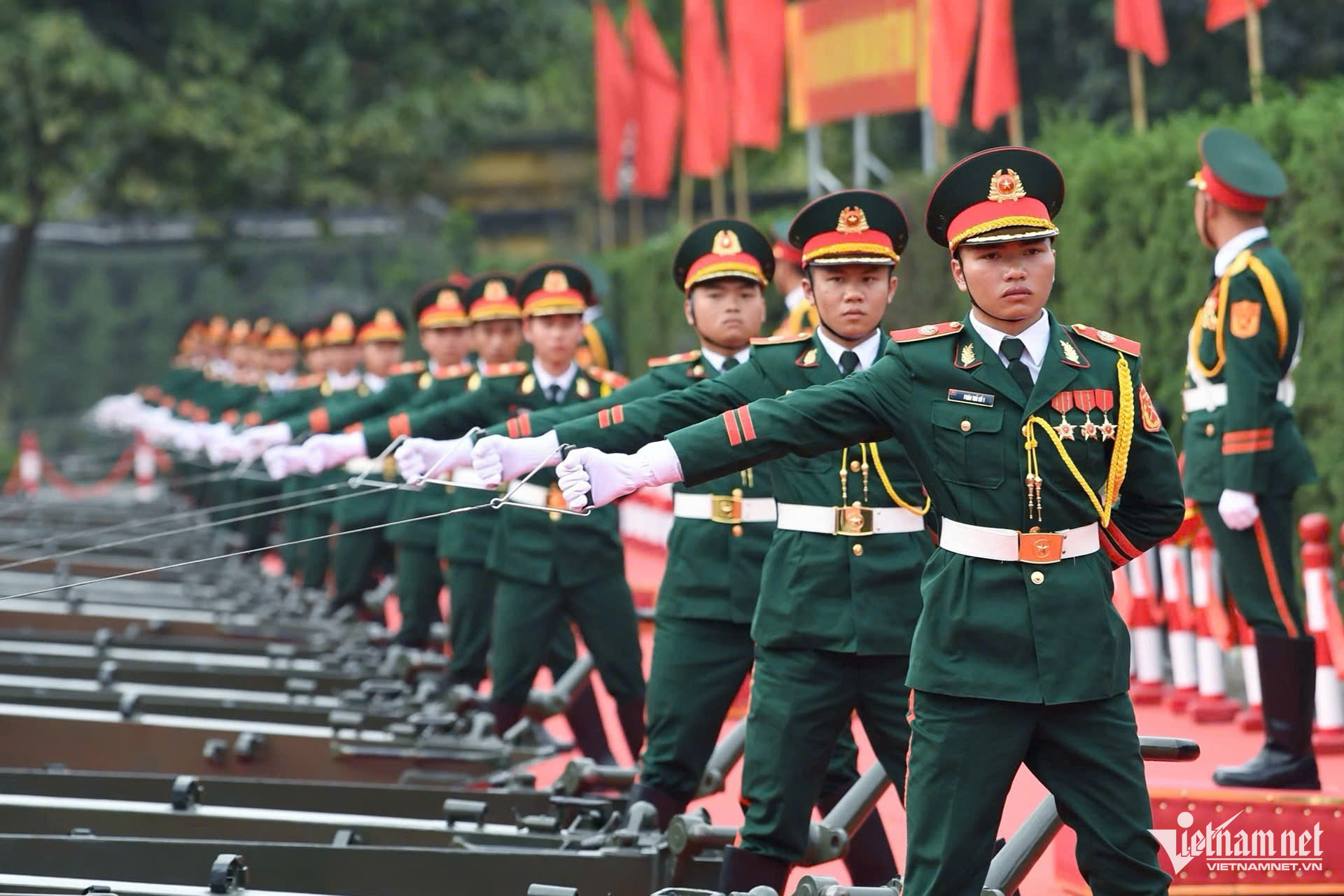
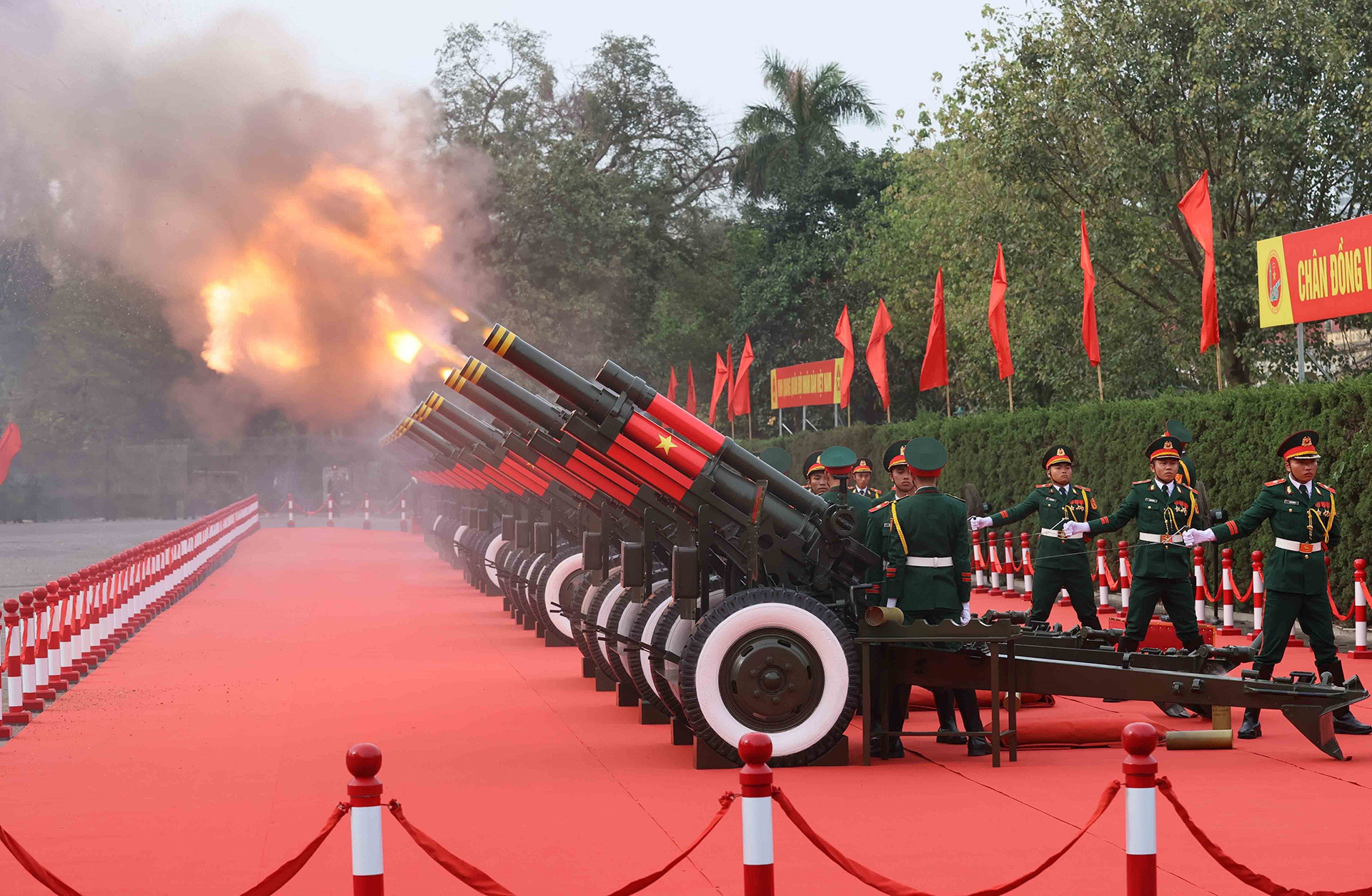

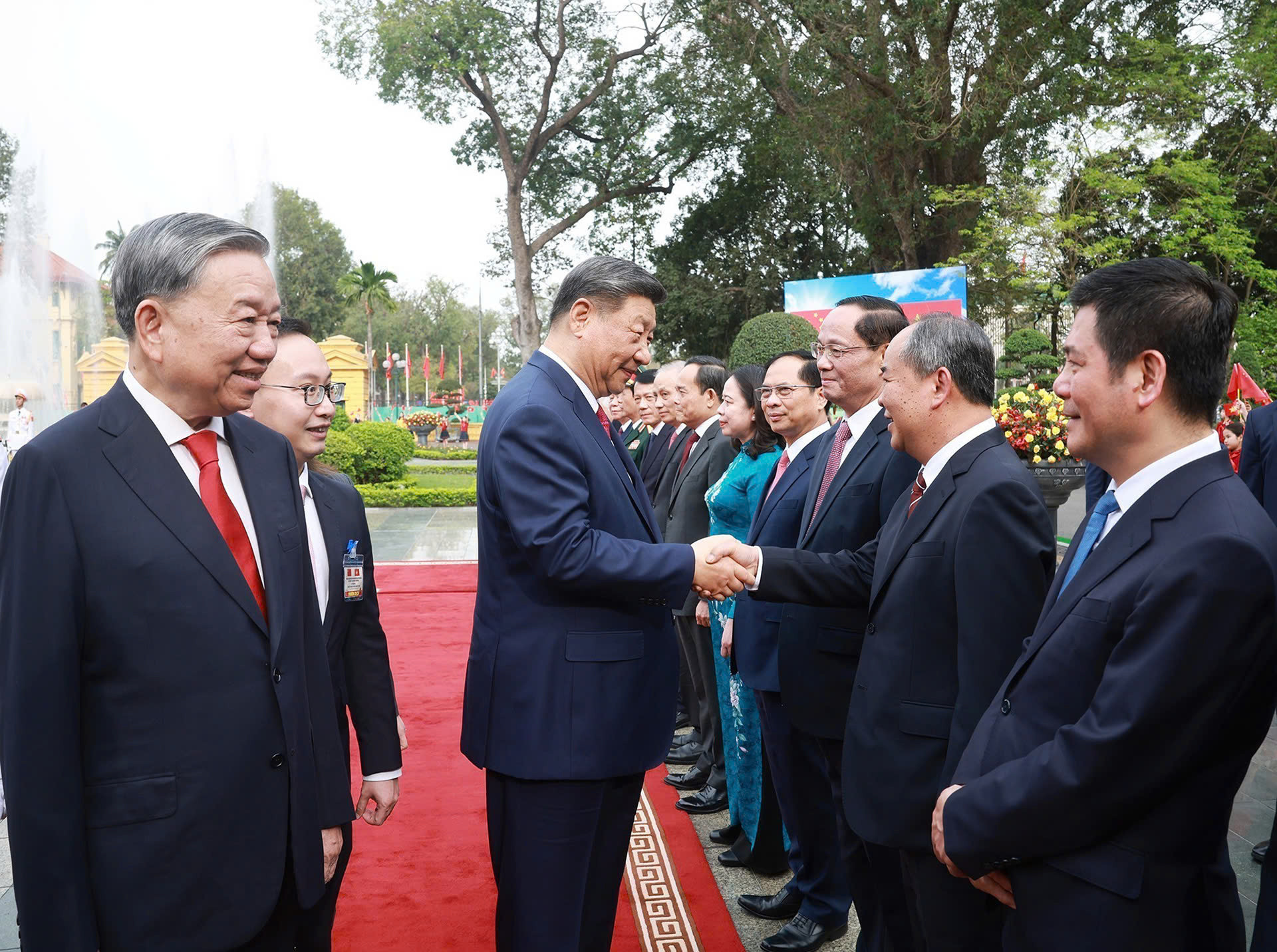
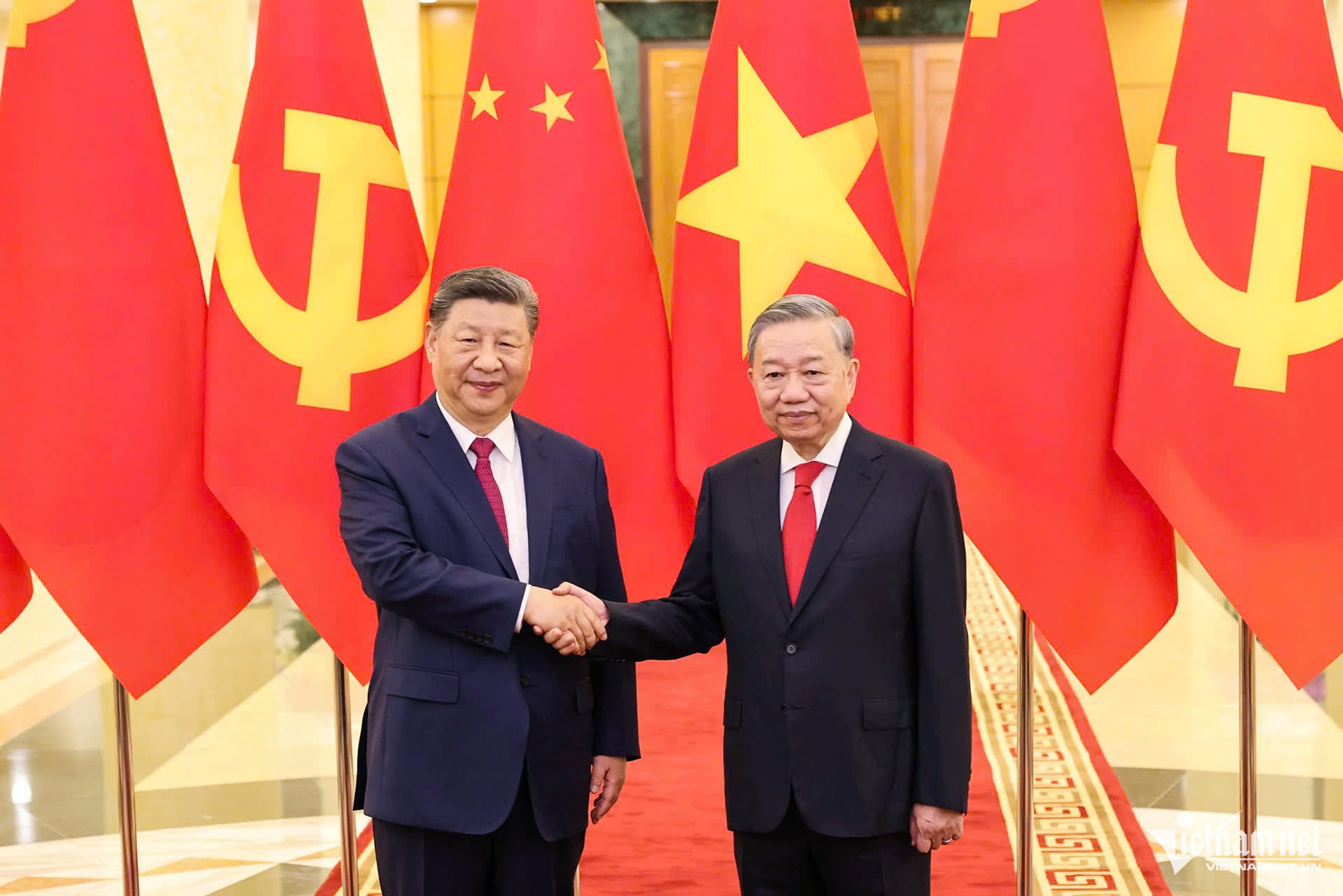
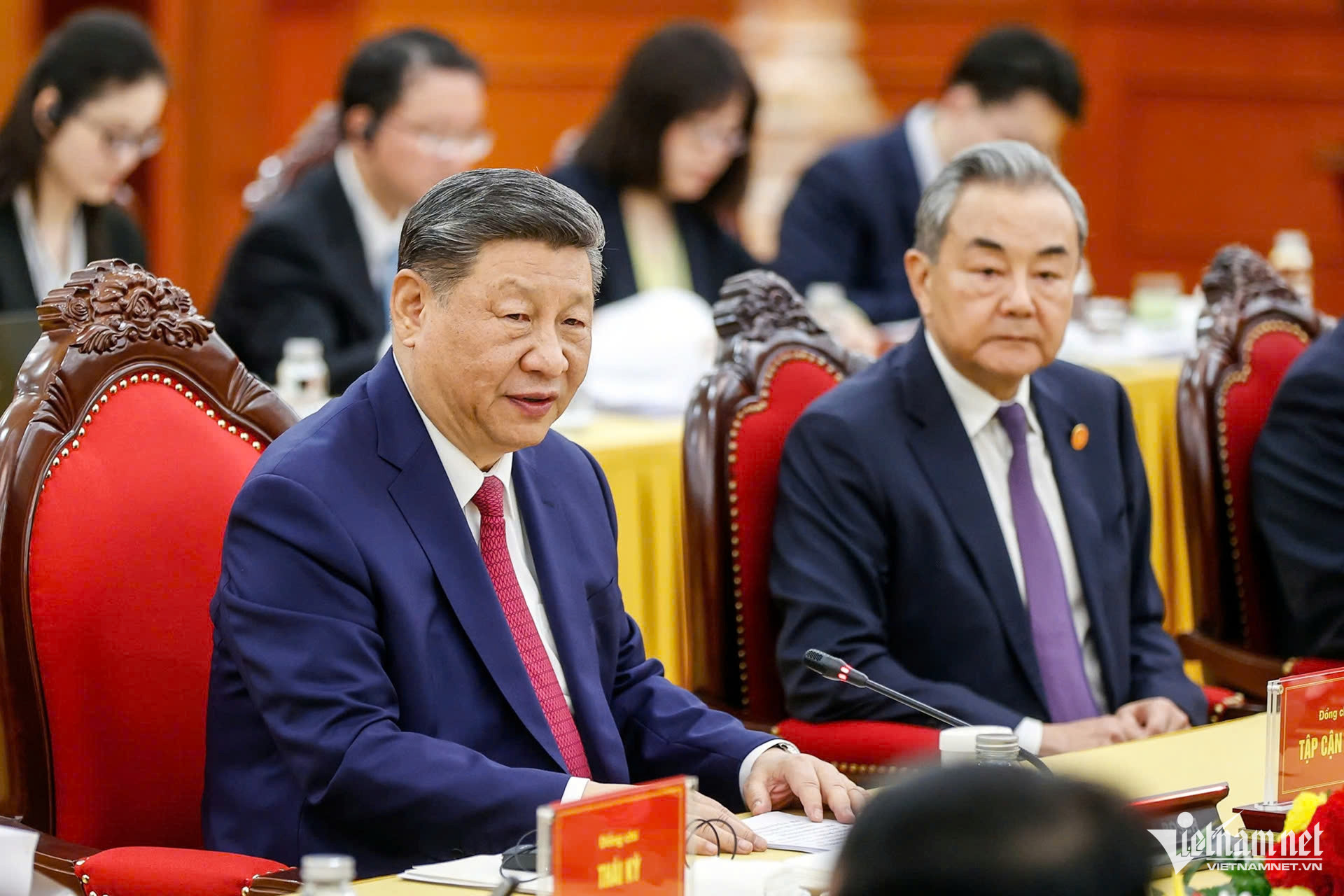
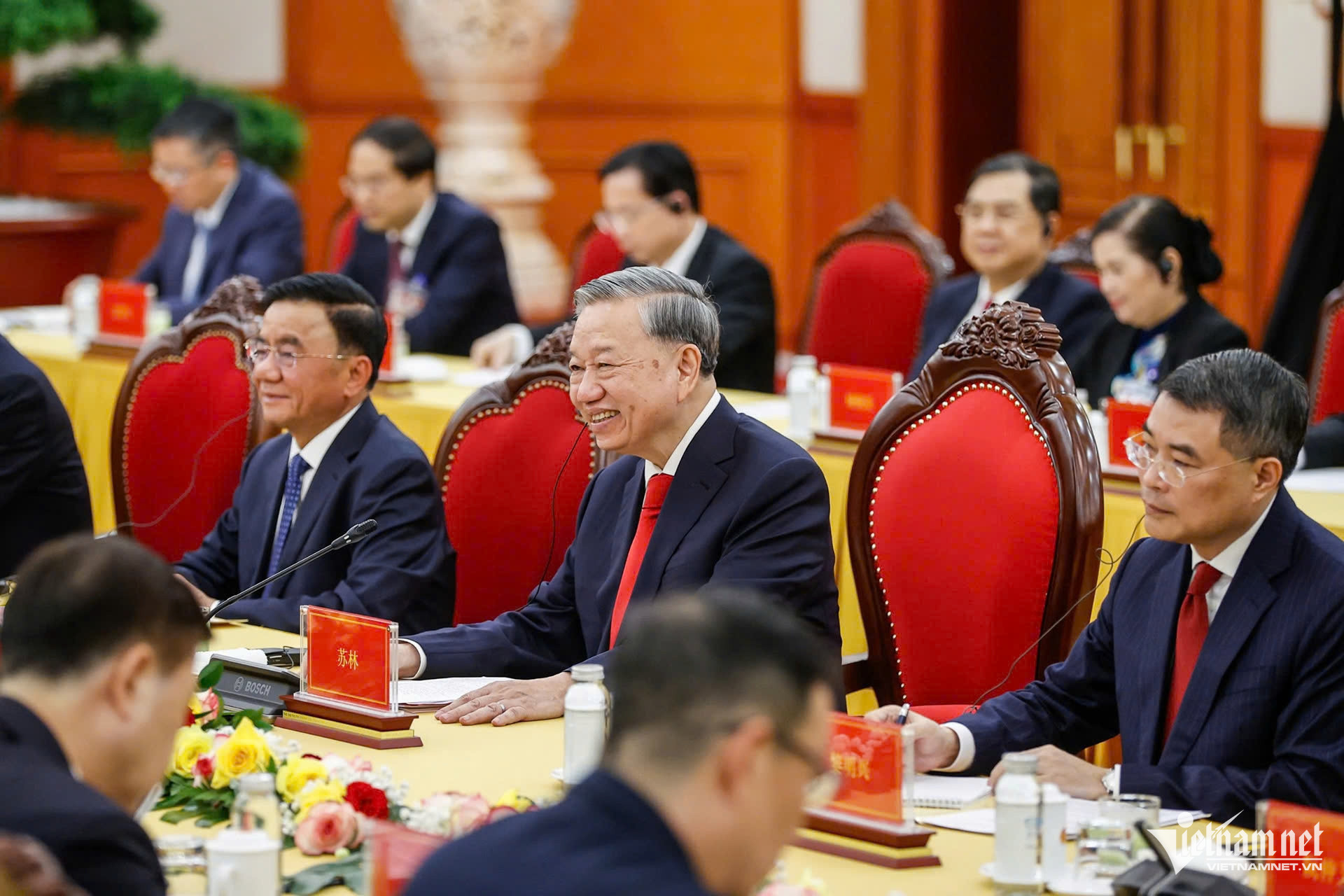
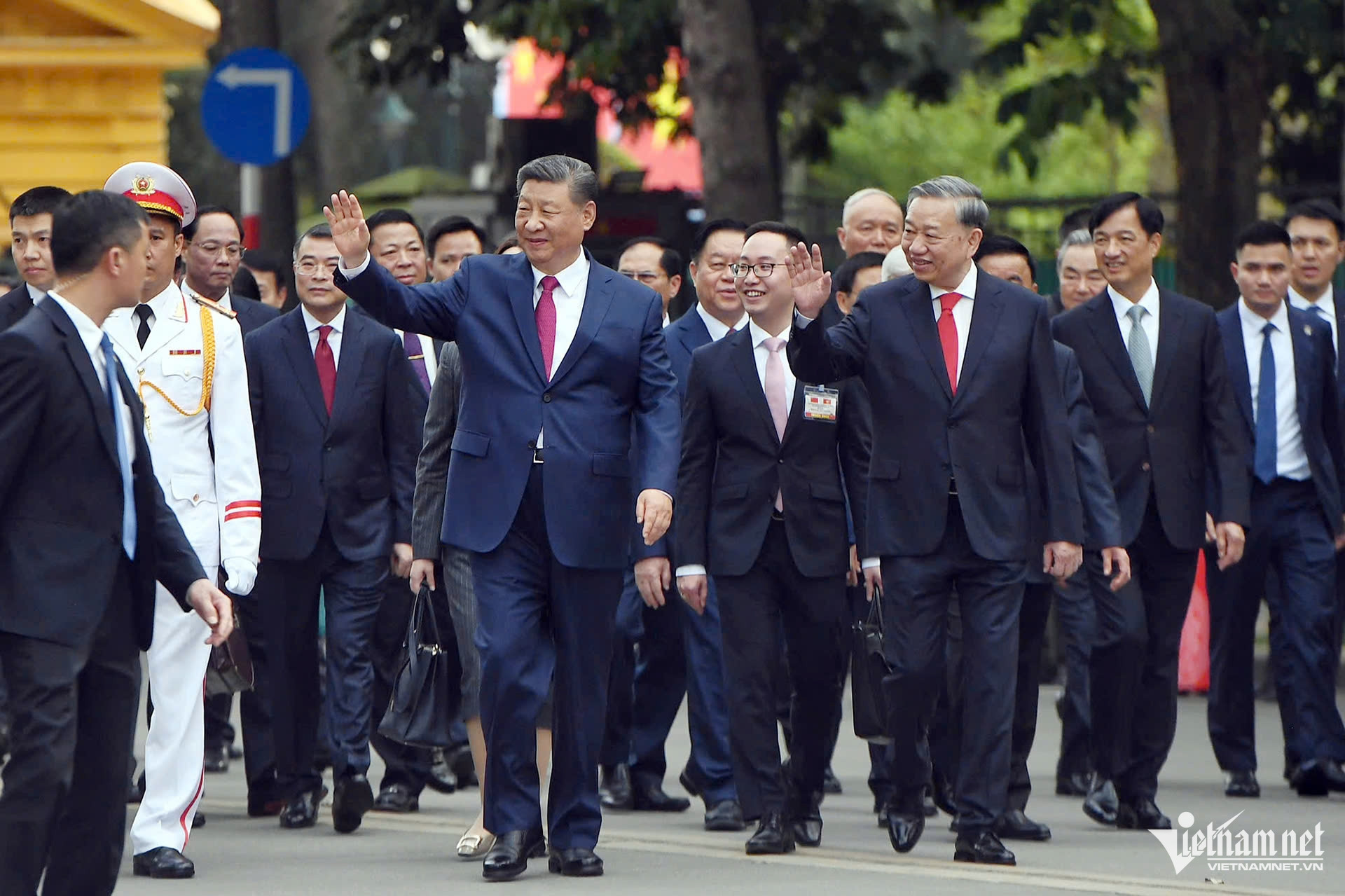
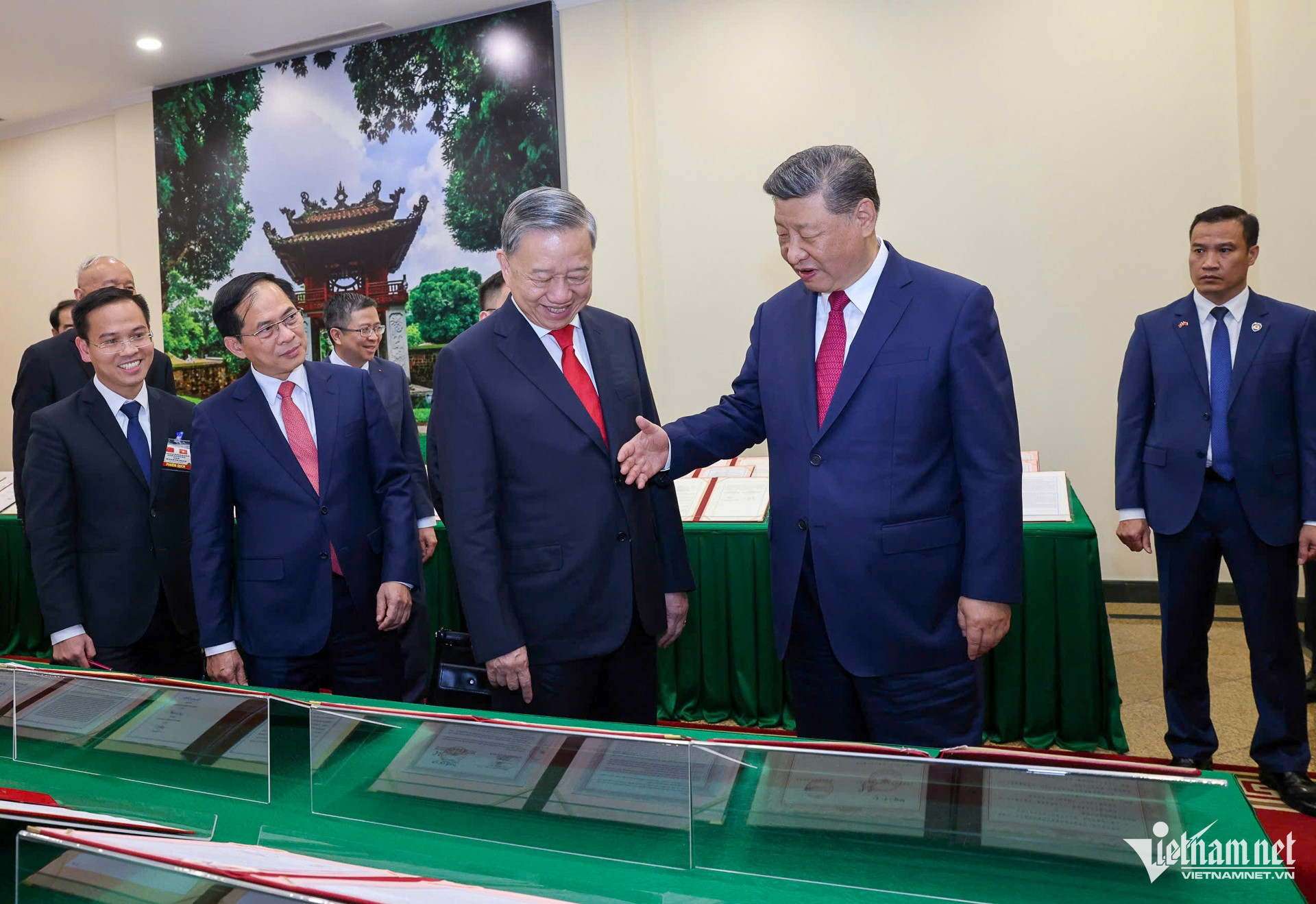

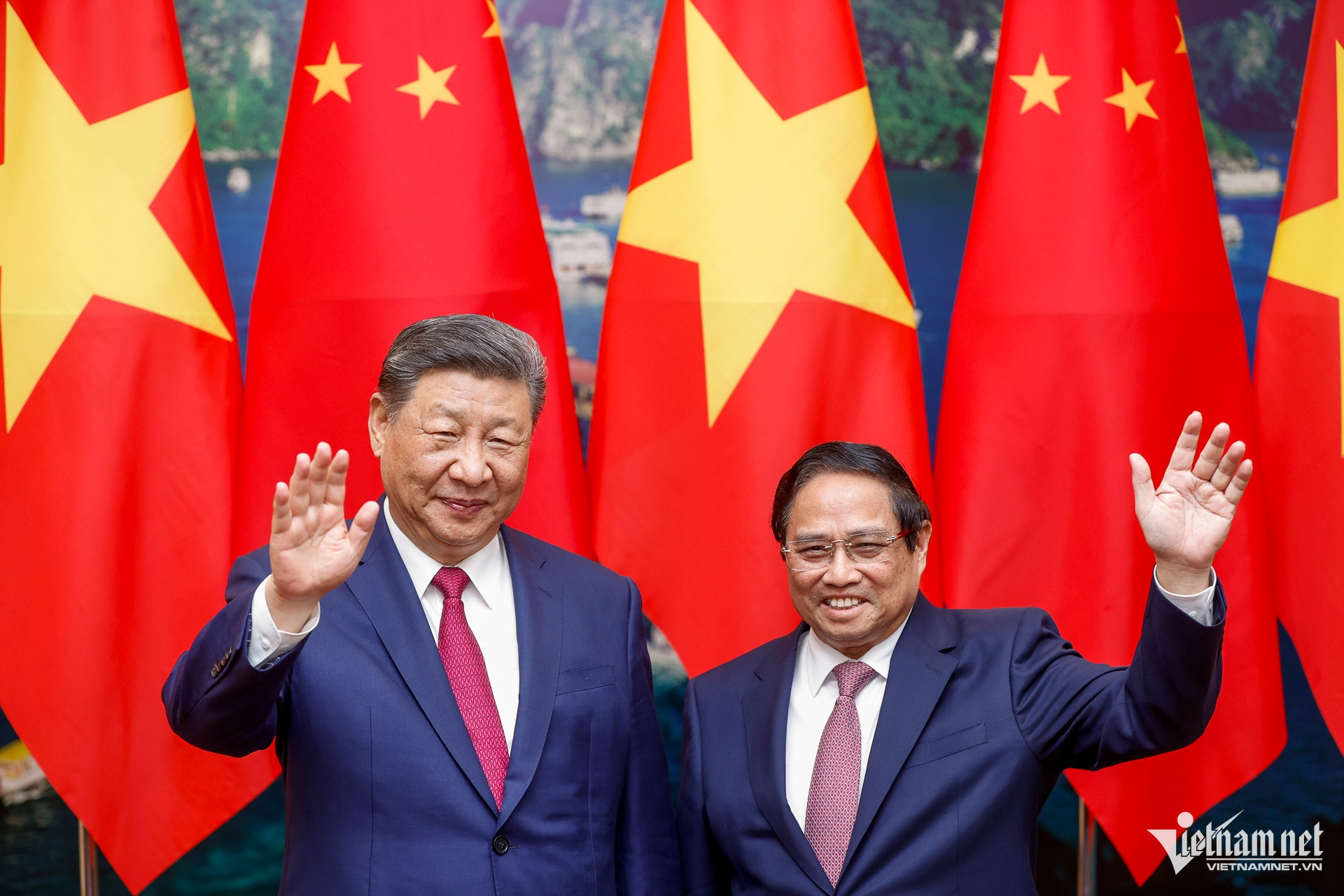

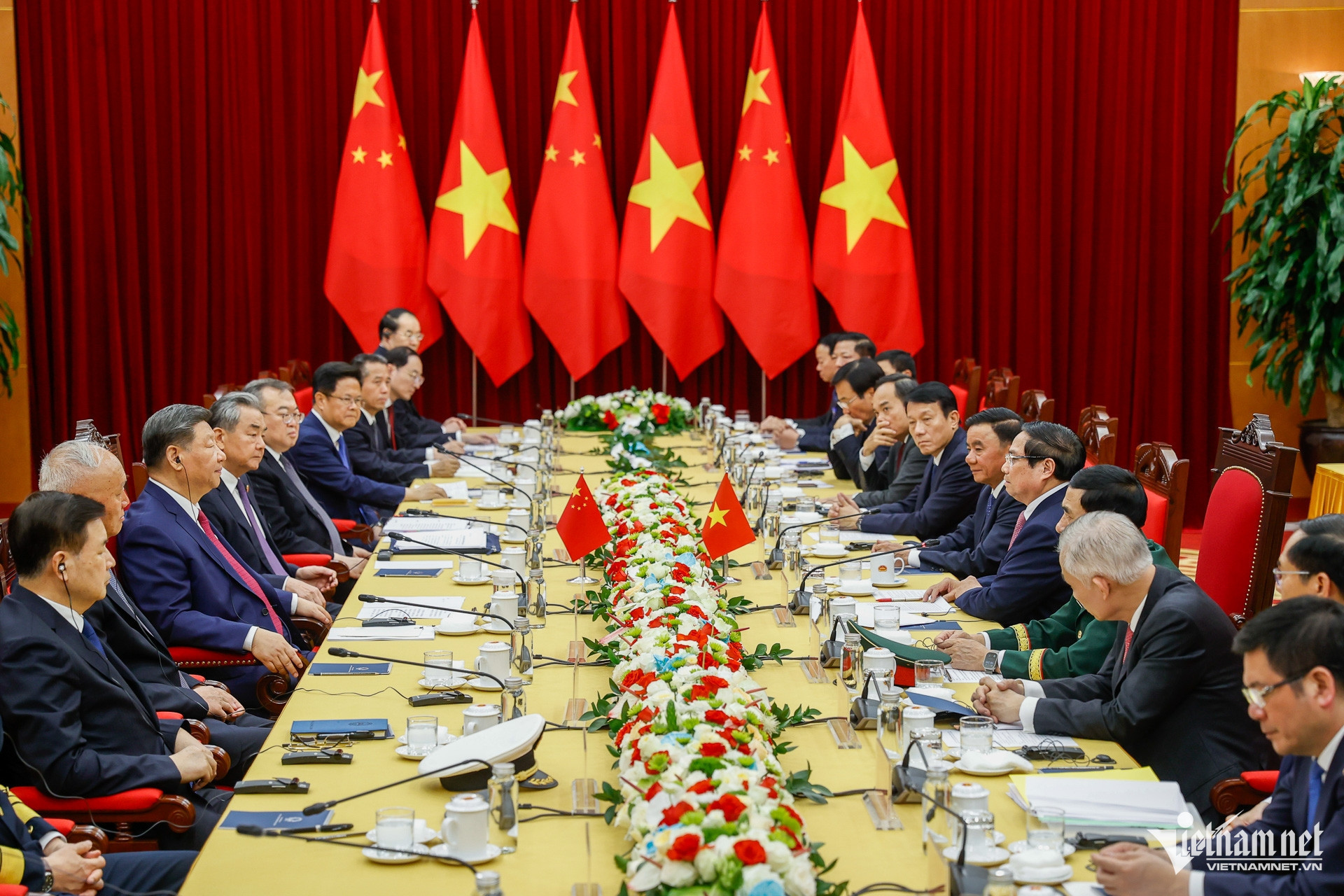
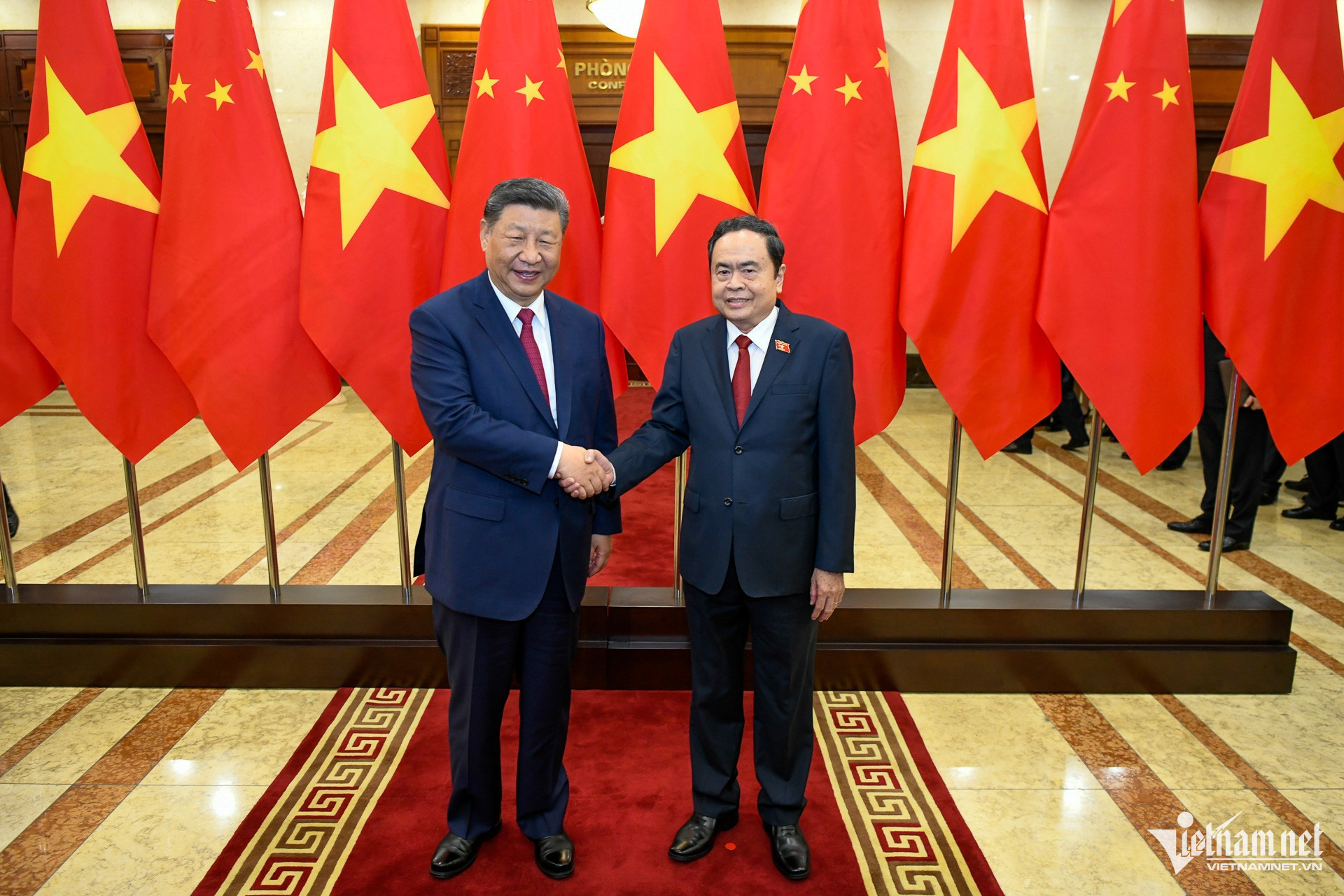
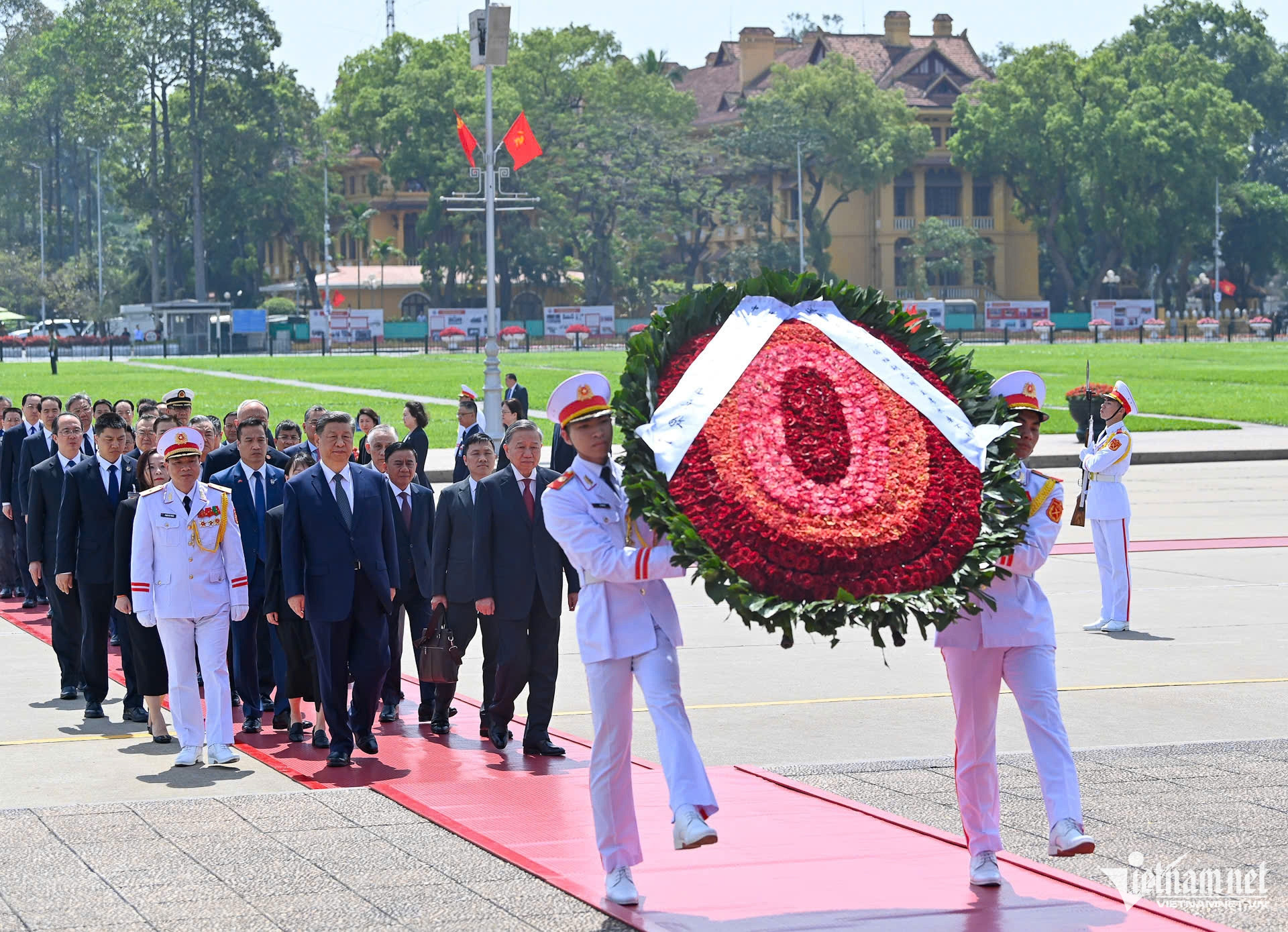
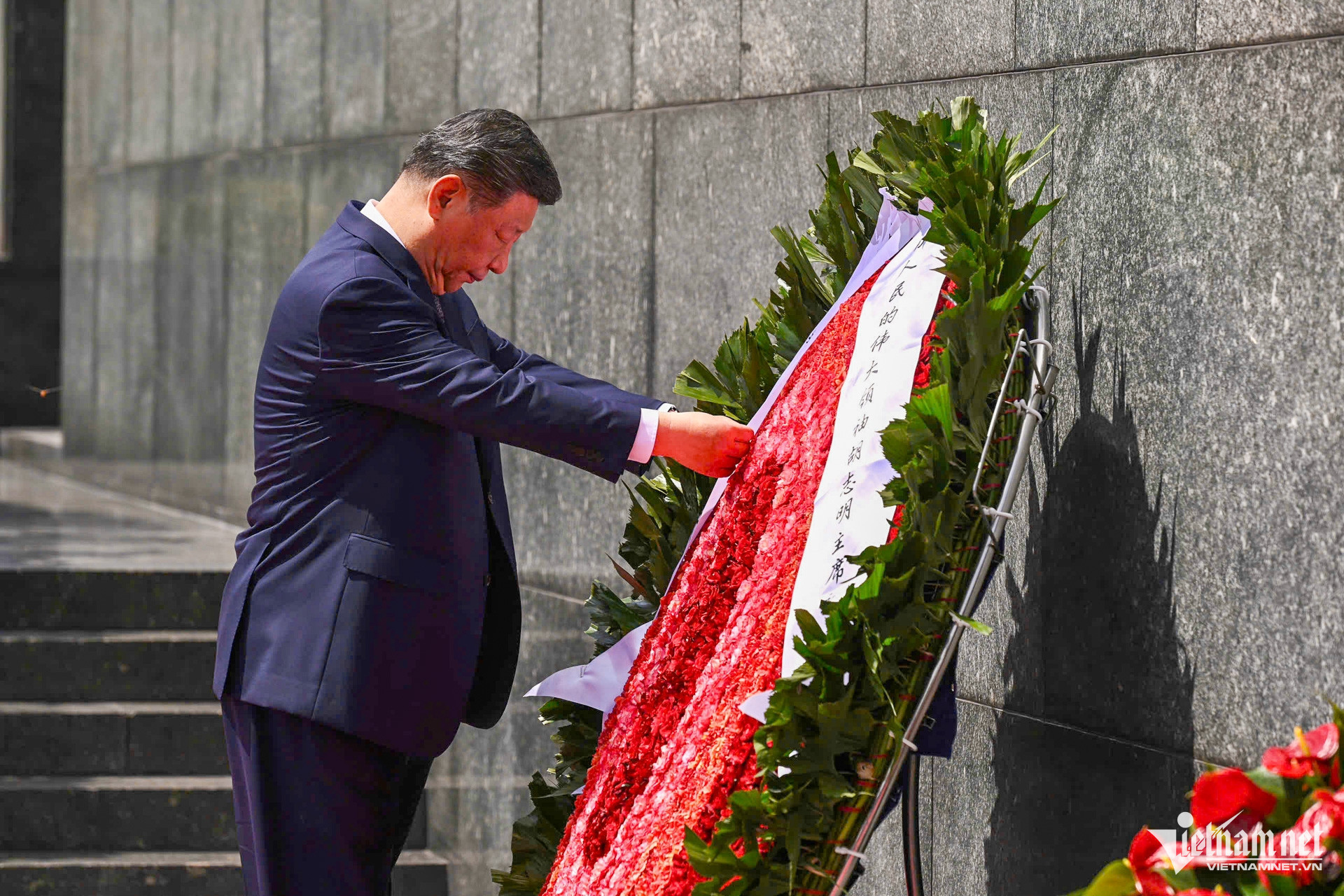
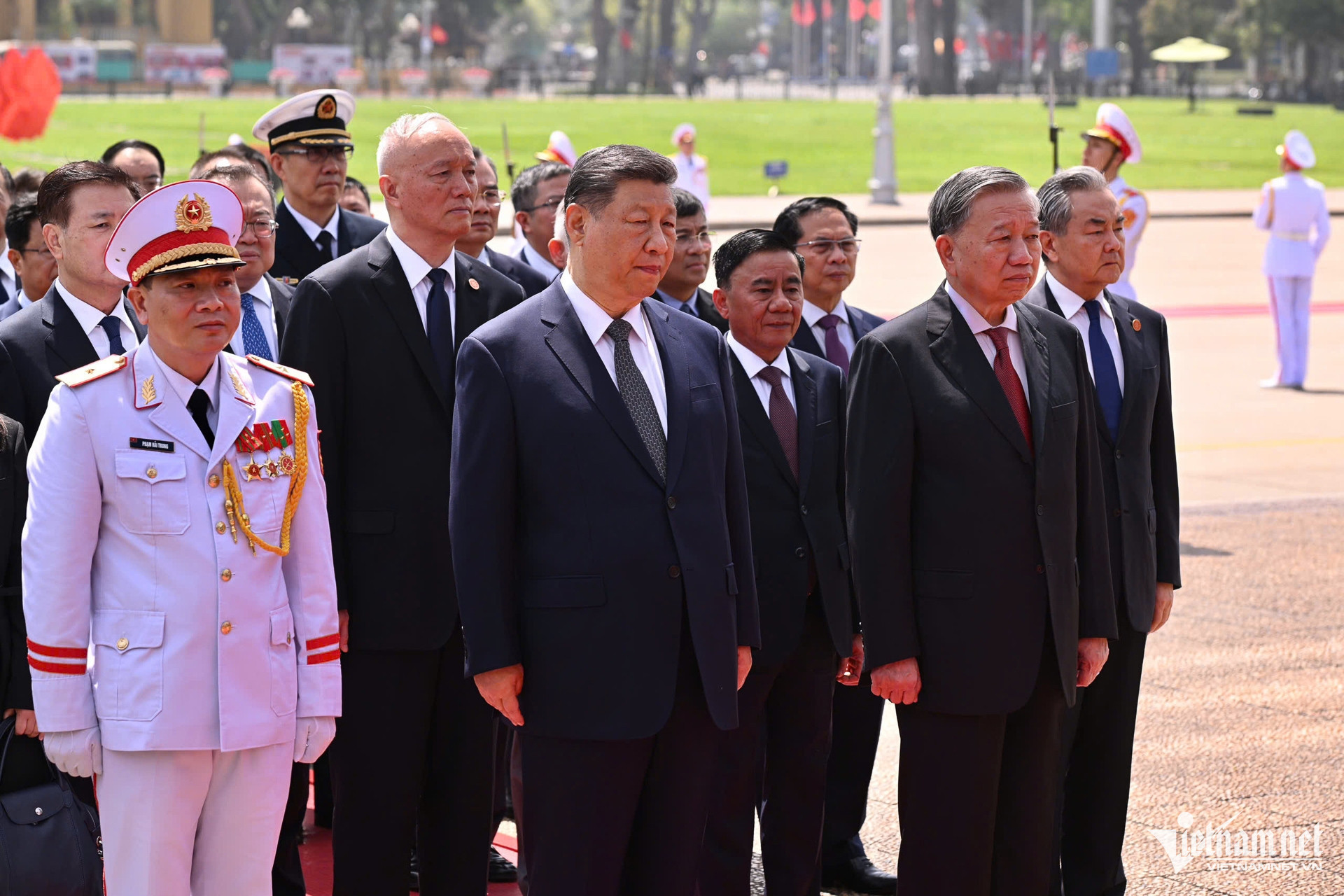
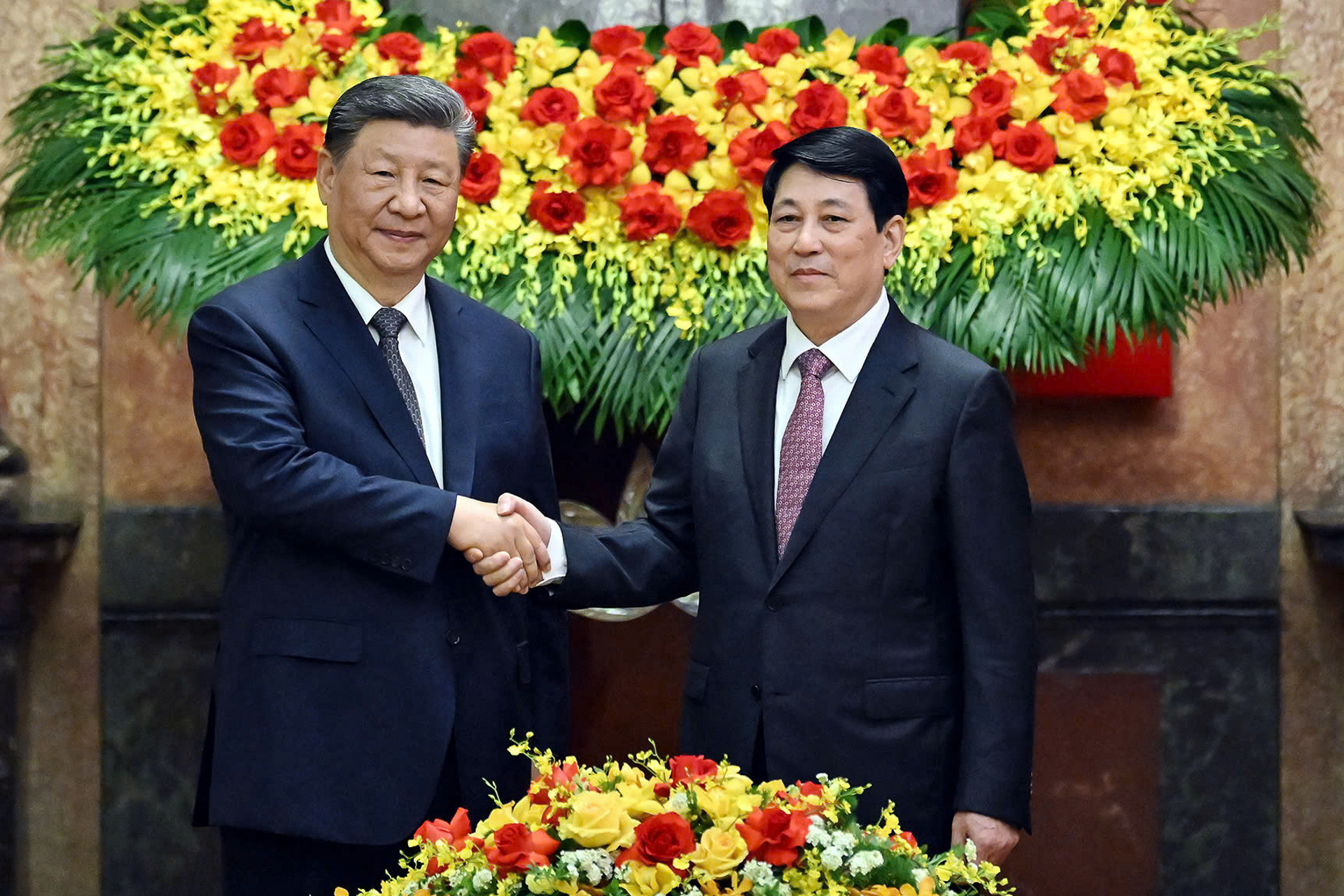
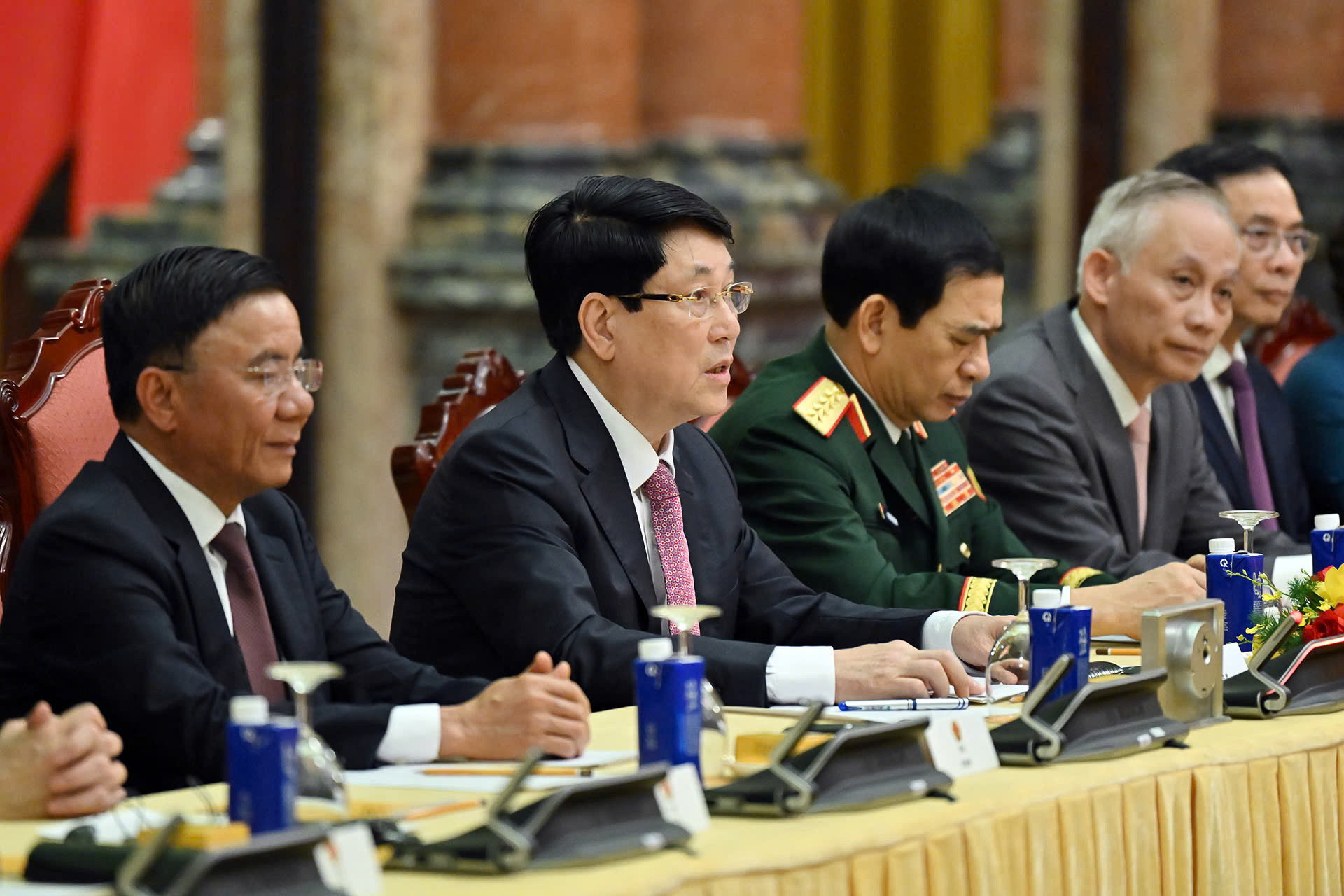
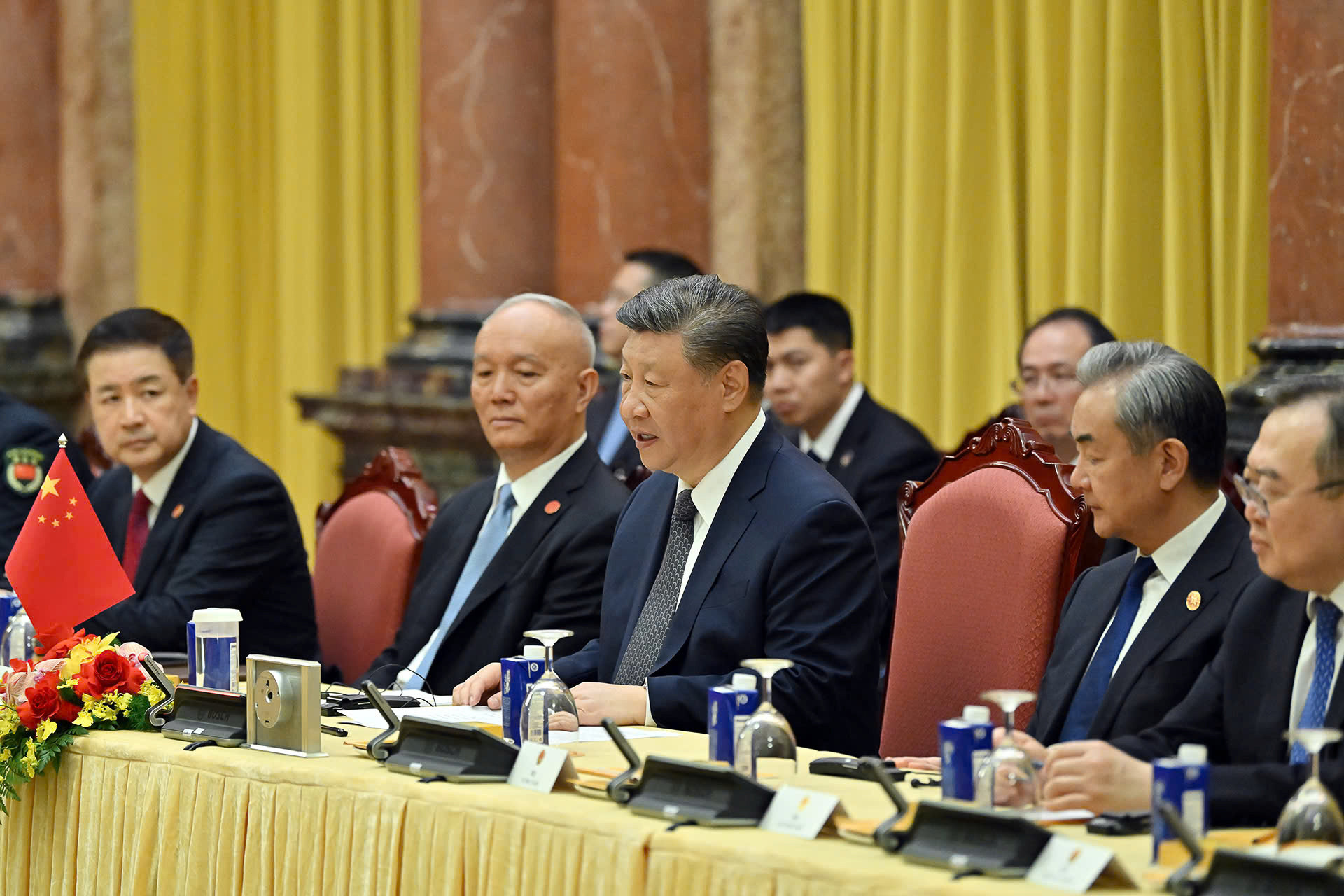

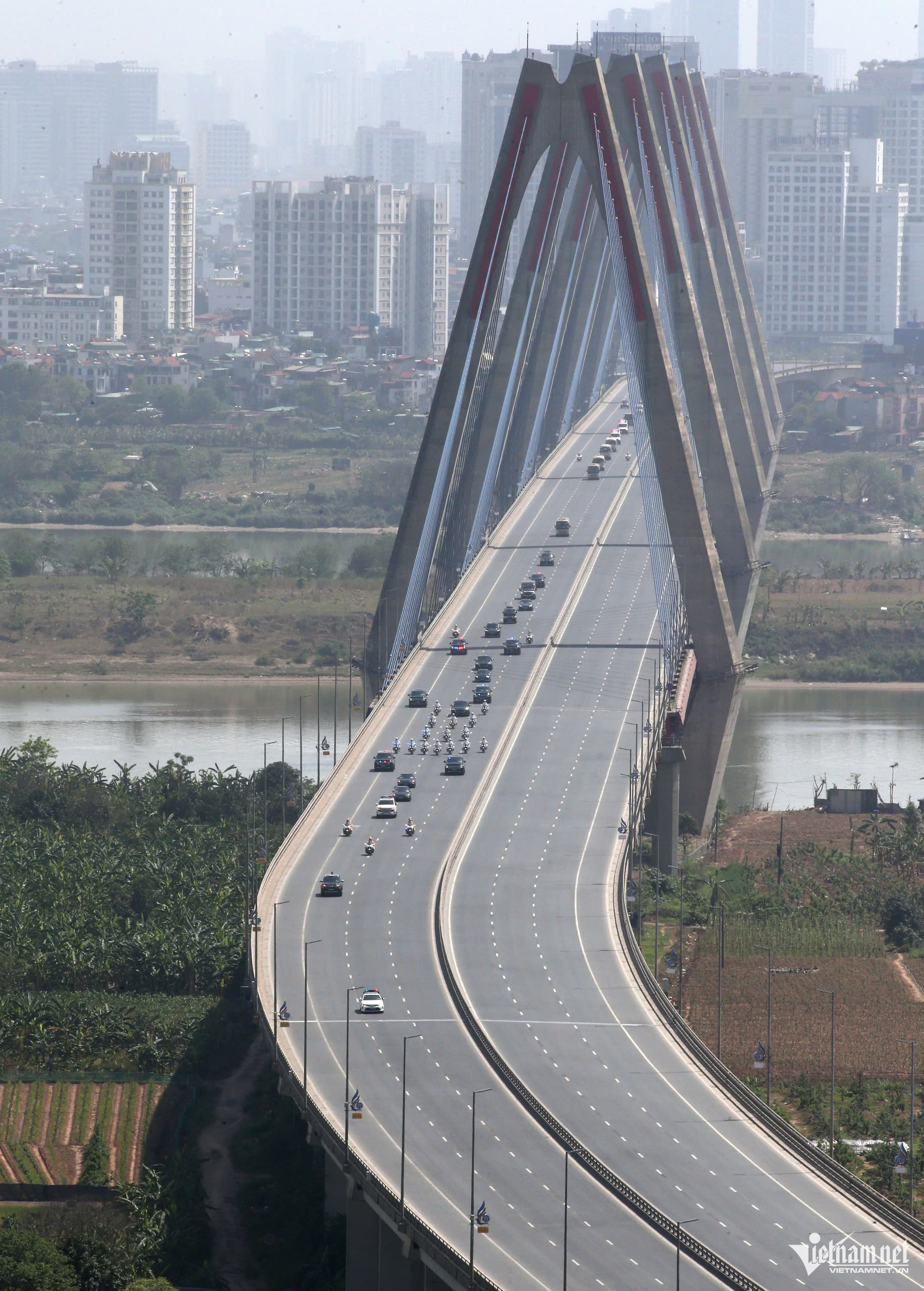
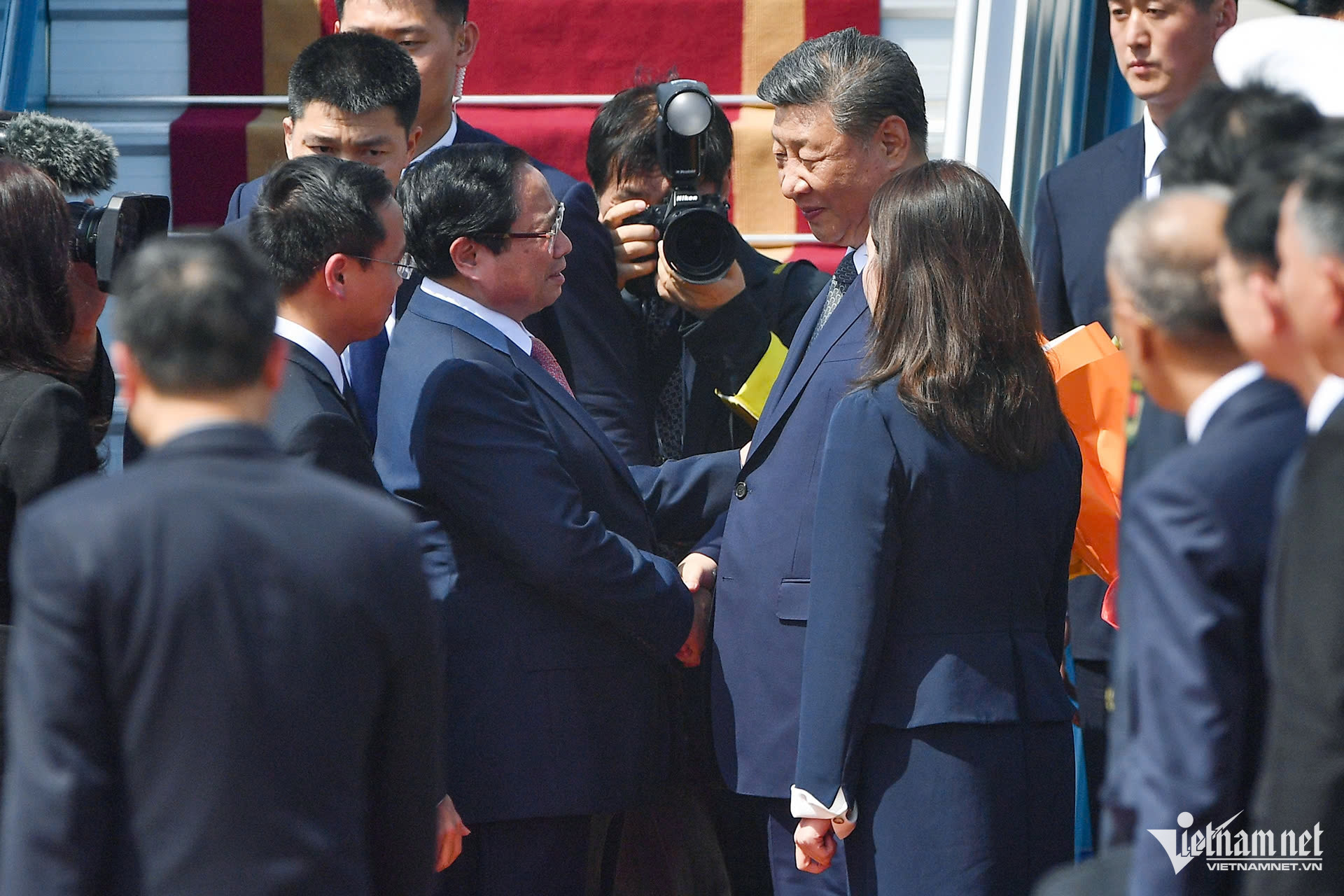
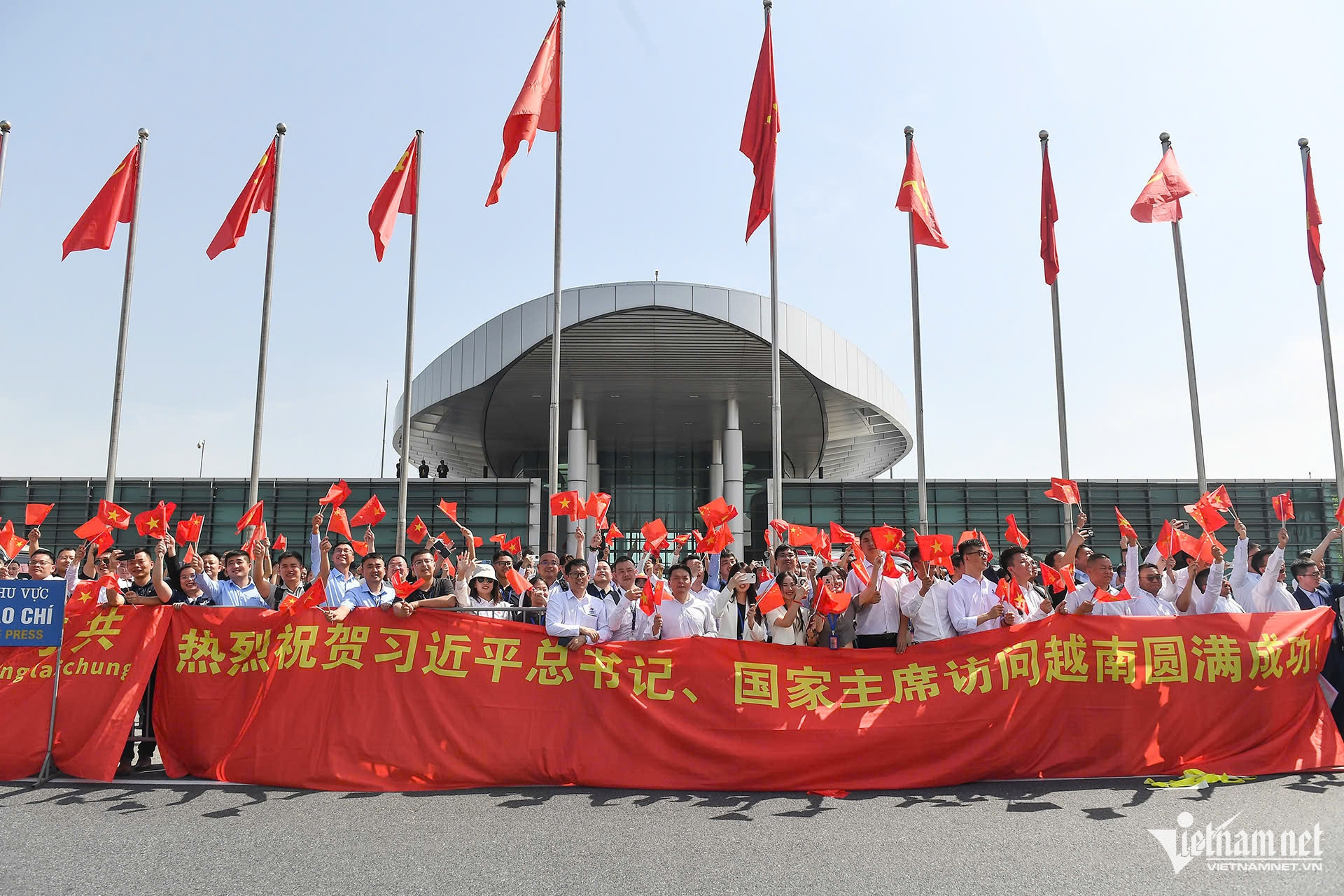
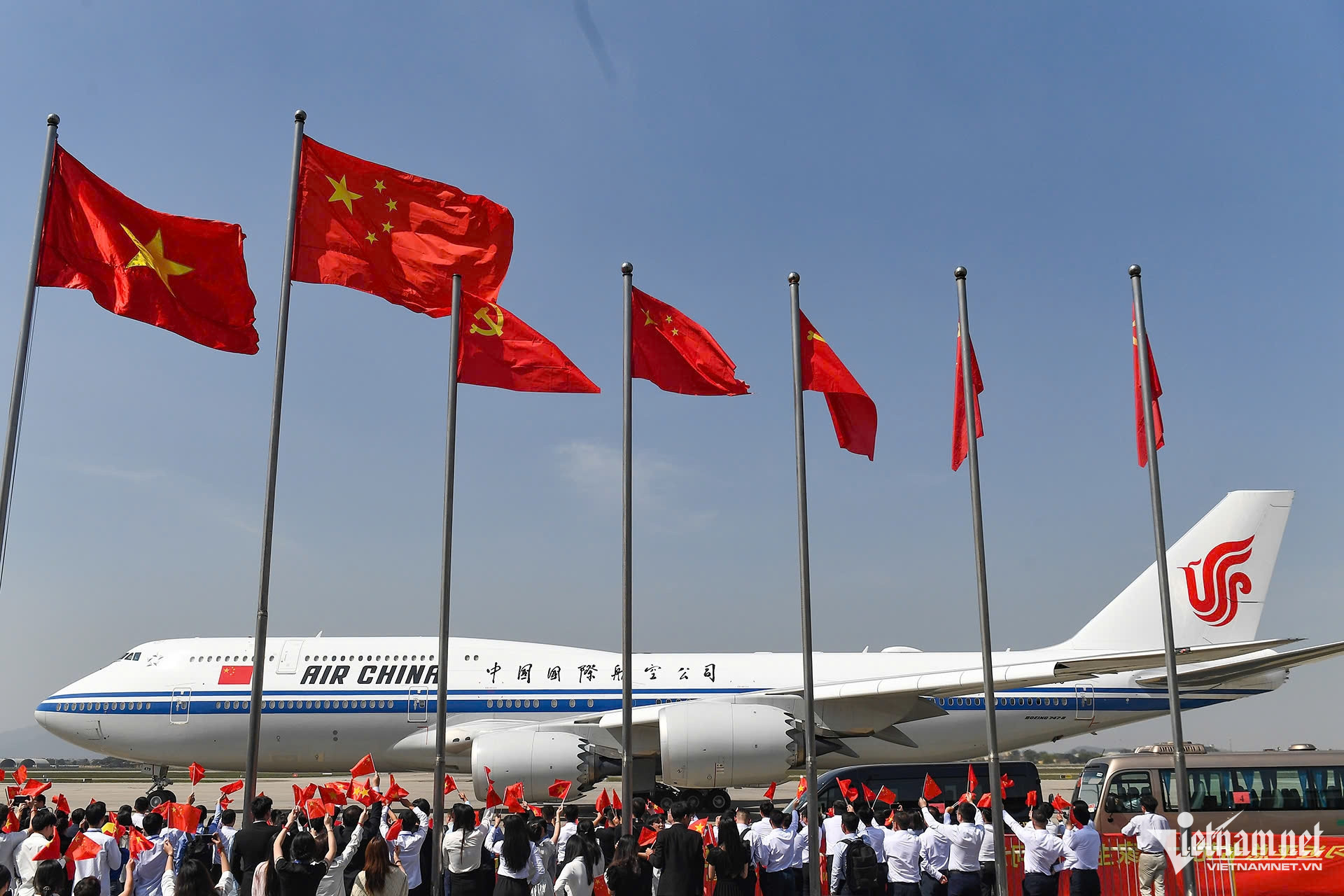
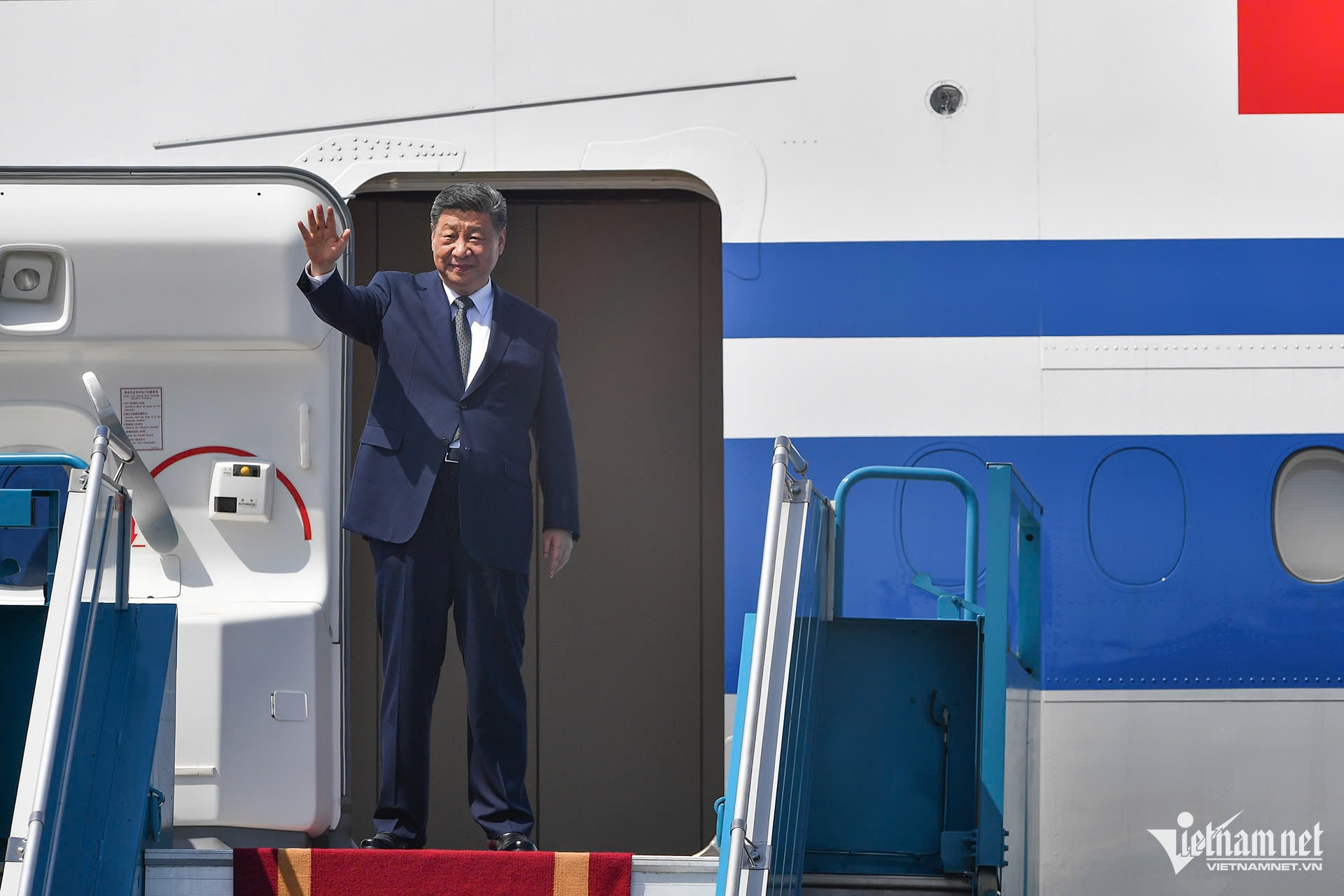
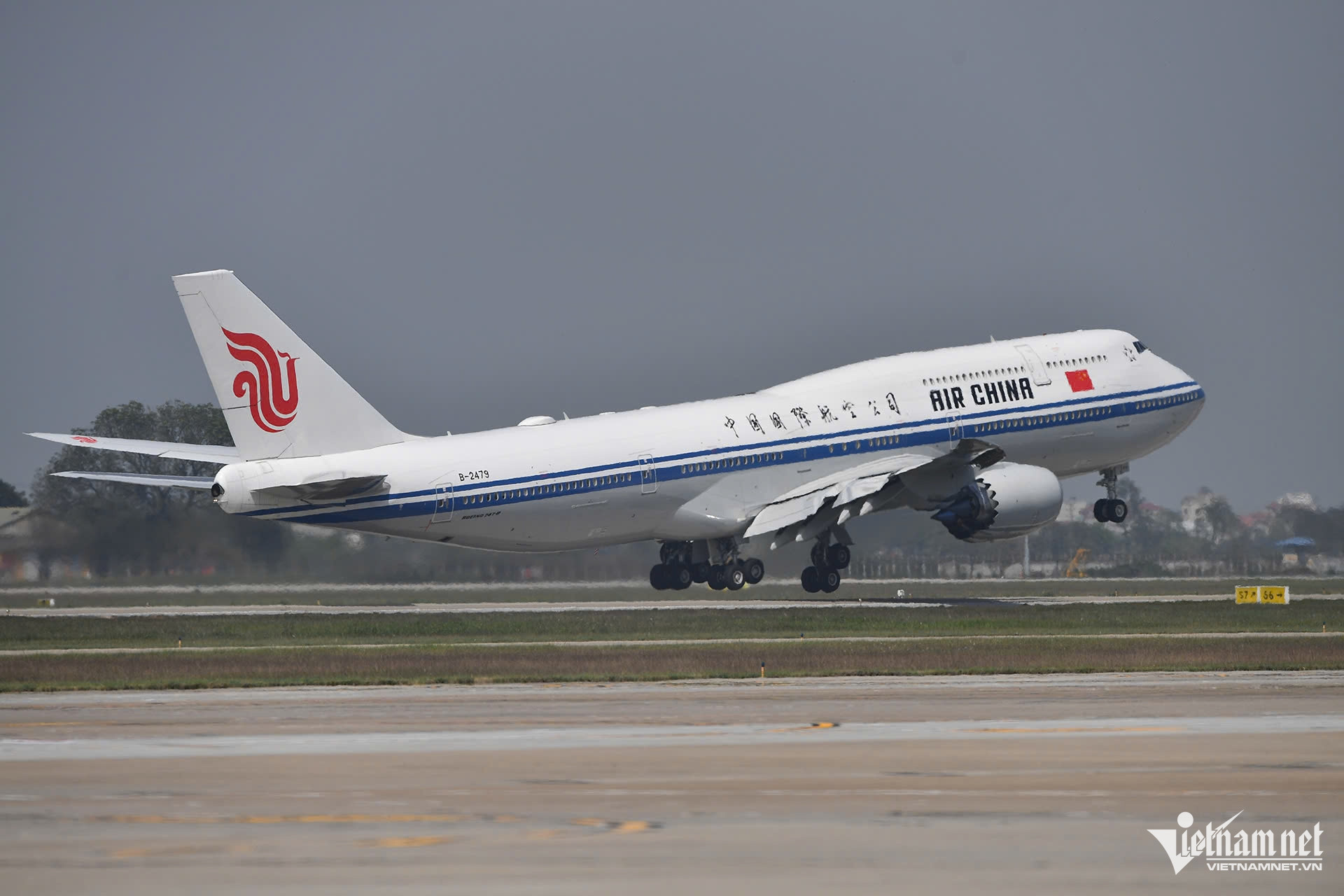
VNN